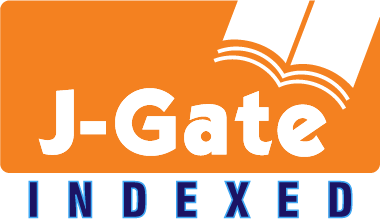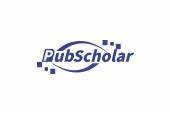-
Publication Ethics and Malpractice Statement
1. Publication Ethics Statement
The publication of an article in Advanced Ultrasound in Diagnosis and Therapy (AUDT) is an essential building block in the development of a coherent and respected network of knowledge. It is a direct reflection of the quality of work of the author and the institutions that support them. Peer-reviewed articles support and embody the scientific method. It is therefore important to agree upon standards of expected ethical behavior.
The entire publication process from submission, review, to publication in AUDT, adheres to the best practices such as those outlined by these organizations:
Committee on Publication Ethics (COPE)
the International Committee of medical Journal Editors (ICMJE)
World Association of Medical Editors (WAME)
2. Ethical Guidelines
2.1 Ethical Guidelines for Authors
Authors must certify that all data in the article are real, and the work reported in the manuscript is original and free from any plagiarism.
Authors must state that the work has not been published previously or is being considered for publication by any other journals at the same time.
Authors must disclose any potential conflict of interest associated with the manuscript.
All authors must have significantly contributed to the research and fulfill the authorship criteria.
2.2 Ethical Guidelines for Reviewers
Reviewers should comply with the journal’s requirements for the scope, content, and quality of the review.
Reviewers should provide timely, detailed, constructive, and unbiased evaluations of the scientific content of the manuscript.
Reviewers should inform the journal editor of any financial or personal conflicts of interest.
Reviewers should notify the journal editors of any ethical concerns in reviewing submissions, such as violation of ethical treatment of animal or human subjects or previously published articles that bear a strong resemblance to any of the reviewed manuscripts.
2.3 Ethical Guidelines for Editors
Editors should treat all authors fairly, courteously, objectively and honestly. All manuscripts should be assessed objectively on the basis of their scholarly merit and should not involve any commercial or self-interest.
Editor shall ensure that the peer-review process is fair, unbiased, and timely. Research articles must normally be reviewed by at least two independent reviewers.
Editor shall not disclose any information related to submitted manuscripts prior to publication.
Editor is responsible for assigning manuscripts to reviewers based on their areas of specialization and interest.
2.4 Ethical Conduct of Research
All submissions to AUDT must be accompanied by a statement confirming that:
(1) the research methods were reviewed and approved by an Institutional Review Board or formally constituted ethics committee, or else reviewed and deemed exempt from ethics review.
(2) the researchers obtained informed consent from any participants involved, unless this was specifically waived by the ethical oversight committee.
(3) the research was conducted in keeping with recognized ethical standards.
3. Ethics topics to consider when publishing
Authorship Criteria: Each author should have participated sufficiently in the work to take public responsibility for appropriate portions of the content. Authorship credit should be based only on (1) substantial contributions to conception and design, or acquisition of data, or analysis and interpretation of data; and (2) drafting the article or revising it critically for important intellectual content; and (3) final approval of the version to be published. Conditions 1, 2, and 3 must all be met. Transparency about the contributions of authors is encouraged, for example in the form of a CRediT author statement.
Role of the Corresponding Author: The corresponding author (or coauthor designee) will serve on behalf of all coauthors as the primary correspondent with the editorial office during the submission and review process. If the manuscript is accepted, the corresponding author will review an edited typescript and proof, make decisions regarding release of information in the manuscript to the news media, government agencies, or both, and will be identified as the corresponding author in the published article. The corresponding author is responsible for ensuring that the Acknowledgment section of the manuscript is complete. “Acknowledgment” is the general term for the list of contributions, credits, and other information included at the end of the text of a manuscript but before the references.
Group Authorship: If authorship is attributed to a group (either solely or in addition to one or more individual authors), all members of the group must meet the full criteria and requirements for authorship as described above. If that is not the case, a group must designate one or more individuals as authors or members of a writing group who meet full authorship criteria and requirements. Other group members who are not authors may be listed in an Acknowledgment.
Contributors: Those who meet some but not all of the criteria for authors can be identified as “contributors” with their contribution specified and they should be acknowledged in the paper.
Originality and plagiarism: The authors should ensure that they have written entirely original works, and if the authors have used the work and/or words of others, that this has been appropriately cited or quoted.
Data access and retention: Authors may be asked to provide the raw data in connection with a paper for editorial review, and should be prepared to provide public access to such data.
Multiple, redundant or concurrent publication: An author should not in general publish manuscripts describing essentially the same research in more than one journal or primary publication. AUDT does not view the following uses of a work as prior publication: publication in the form of an abstract; publication as an academic thesis; publication as an electronic preprint. Note: some society-owned titles and journals that operate double-blind review have different policies on prior publication. Information on prior publication is included within each AUDT’s guide for authors.
Acknowledgement of sources: Proper acknowledgment of the work of others must always be given.
Disclosure and conflicts of interest: All submissions must include disclosure of all relationships that could be viewed as presenting a potential conflict of interest.
Fundamental errors in published works: When an author discovers a significant error or inaccuracy in his/her own published work, it is the author's obligation to promptly notify the journal editor or publisher and cooperate with the editor to retract or correct the paper.
Reporting standards: Authors of reports of original research should present an accurate account of the work performed as well as an objective discussion of its significance.
Hazards and human or animal subjects: Statements of compliance are required if the work involves chemicals, procedures or equipment that have any unusual hazards inherent in their use, or if it involves the use of animal or human subjects.
Use of patient images or case details: Studies on patients or volunteers require ethics committee approval and informed consent, which should be documented in the paper.
Ethical Conduct of Research: all submissions to AUDT must be accompanied by a statement confirming that (1) the research methods were reviewed and approved by an Institutional Review Board or formally constituted ethics committee, or else reviewed and deemed exempt from ethics review; (2) the researchers obtained informed consent from any participants involved, unless this was specifically waived by the ethical oversight committee; and (3) the research was conducted in keeping with recognized ethical standards.
Identification of and Dealing with Allegations of Research Misconduct: AUDT adopts the mechanism to identify and prevent the publication of papers where research misconduct has occurred including plagiarism, citation manipulation, and data falsification/fabrication.
All manuscripts are processed through licensed plagiarism detection software before acceptance of the manuscript for publication.
Reviewers who are experts in the subject areas are selected based on their expertise.
Reviewers identified by AUDT are trained to identify citation manipulation and data falsification/fabrication.
Author(s) if identified for such misconduct or allegations are dealing as per the guidelines given by COPE.
Handling Appeals and Complaints from Authors: AUDT follows the COPE guidelines on appeals to journal editor decisions and complaints about a journal’s editorial management of the peer review process.
Ethical Conduct of Research: all submissions to AUDT must be accompanied by a statement confirming that (1) the research methods were reviewed and approved by an Institutional Review Board or formally constituted ethics committee, or else reviewed and deemed exempt from ethics review; (2) the researchers obtained informed consent from any participants involved, unless this was specifically waived by the ethical oversight committee; and (3) the research was conducted in keeping with recognized ethical standards.
Identification of and Dealing with Allegations of Research Misconduct: AUDT adopts the mechanism to identify and prevent the publication of papers where research misconduct has occurred including plagiarism, citation manipulation, and data falsification/fabrication.
All manuscripts are processed through licensed plagiarism detection software before acceptance of the manuscript for publication.
Reviewers who are experts in the subject areas are selected based on their expertise.
Reviewers identified by AUDT are trained to identify citation manipulation and data falsification/fabrication.
Author (s) if identified for such misconduct or allegations are dealing as per the guidelines given by COPE.
Handling Appeals and Complaints from Authors: AUDT follows the COPE guidelines on appeals to journal editor decisions and complaints about a journal’s editorial management of the peer review process.
Updated on 22 November 2023














